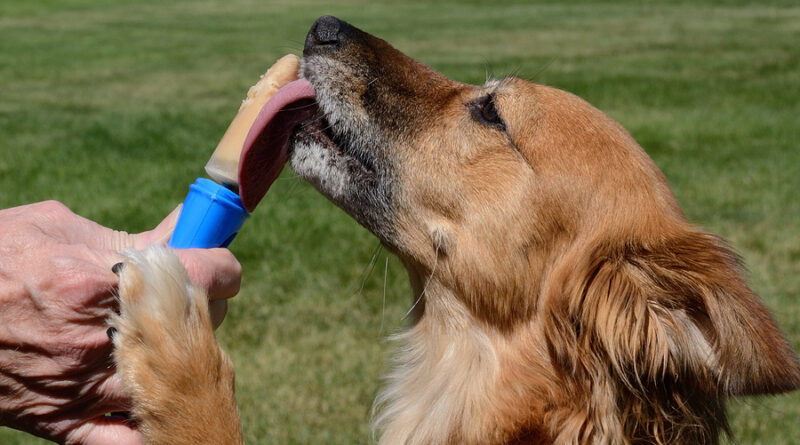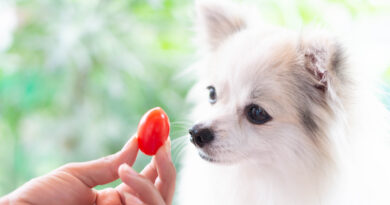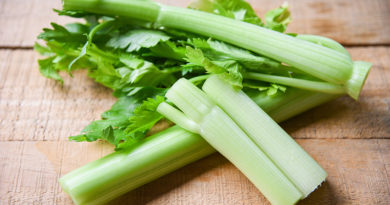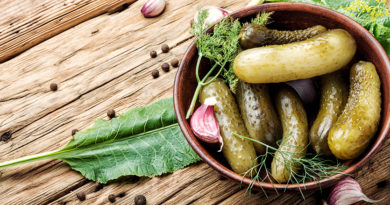Can Dogs Eat Peanut Butter?
Featured image by © bigstockphoto.com / Merrimon
Can Dogs Eat Peanut Butter? - is it safe
Peanut butter is one of the most popular treats for dogs. It’s even recognized by the National Peanut Board as one of the best foods that dogs consider as a reward for being good. Images of golden retrievers licking up peanut butter-coated spoons have been popular in movies, shows, and various commercials ever since the color TV was invented.
However, some recent trends in social media have disputed the fact that peanut butter is safe for dogs. Some people on Twitter have even argued that dogs can die from peanut butter poisoning. Is there any truth to this, and can dogs eat peanut butter safely?
The Benefits of Feeding Your Dog Peanut Butter
For most dog owners, when they open a peanut butter jar, they will find their dogs suspiciously lingering with their wet noses sniffing their legs and their elbows. Dogs love the tasty treat that is peanut butter, and for the most part, they are completely safe for all breeds.
A Good Source of Fats and Protein
Peanut butter is a great source of niacin, protein, good fats, and vitamin B for your dog. Homemade peanut butter is the best kind because you can make sure that it’s free of artificial sweeteners, especially xylitol which is prevalent in many peanut butter brands, excessive sodium, and other flavorings. The high levels of sodium on many mass-produced brands can give your dog heart problems, so always opt for the unsalted kind.
Every 100 grams of smooth peanut butter has about 25 grams of protein, which can either be too much or just enough depending on your dog’s size and breed. Protein is an essential macronutrient that helps your dog repair broken tissues and sore muscles and helps it further achieve healthier skin and hair. Ask your vet about your dog’s recommended serving size as dogs of different breeds have different needs.
Good For Your Dog’s Physique
Peanut butter also contains many essential fats that help improve your pet’s mood, energy levels, and insulation. This is especially useful if you live in areas like Wisconsin where winters are especially harsh, or if your dog is very active and can use a healthy layer of cushioning for the occasional bump. According to the Clinical Nutrition Service, fat doesn’t work the same way in dogs as it does to humans, as they won’t get heart problems and strokes from a high-fat diet.

The Downsides of Feeding Your Dog Peanut Butter
If your dog isn’t used to a high-fat diet, or its breed has a history of poorly reacting to fat, you need to be mindful of the amount of peanut butter you’re giving. Peanut butter can be a good vehicle to feed your dog medication, so you might want to reserve it for pills or as a high-value treat when they’ve done something great.
The Dangers of Xylitol
You also need to be careful when shopping around for peanut butter as many mainstream brands use xylitol, which is very dangerous for your pooch. Xylitol is used as a calorie-free sweetener in many sugar-free products, and it’s extremely poisonous to all breeds of dogs with thousands accidentally poisoned each year.
Some peanut butter brands to avoid for their xylitol content are:
- Krush Nutrition
- Nuts ‘N More
- P28
- Go Nuts, Co.
How to Feed Your Dog Peanut Butter
As mentioned before, any type of peanut butter as long as it’s xylitol-free, is safe for your dog to munch on. However, it’s best that you give this tasty treat to your dog in moderation and that you opt for unsalted, organic, and preservative-free brands. Read your labels carefully as xylitol is marketed as an all-natural sweetener.
Dogs will benefit from peanut butter as long as you don’t overfeed them. High levels of fat can make them obese and give them pancreatitis, especially when you have a Yorkshire terrier or a Miniature Schnauzer, so ask your vet how much is okay to give. Peanut butter and other treats should also only compose around 10% of your dog’s daily caloric intake.




